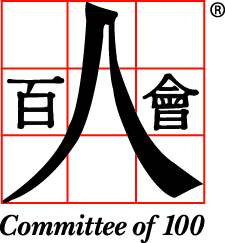百人会 | |
 | |
| Formation | 1990 |
|---|---|
| Type | 501(c)(3) organization |
| 13-3627542 | |
| Headquarters | 28 West 44th Street, Suite 1014, New York, NY 10036 |
| Website | www |
| Committee of 100 | |||||||||||||||||||||||
|---|---|---|---|---|---|---|---|---|---|---|---|---|---|---|---|---|---|---|---|---|---|---|---|
| Traditional Chinese | 百人會 | ||||||||||||||||||||||
| Simplified Chinese | 百人会 | ||||||||||||||||||||||
| Literal meaning | hundred-person association | ||||||||||||||||||||||
| |||||||||||||||||||||||
The Committee of 100 is a 501(c)(3) organization of prominent Chinese Americans in business,government,academia and the arts whose stated aim is "to encourage constructive relations between the peoples of the United States and Greater China." [1] It was founded in 1990 by I. M. Pei. [2]
Contents
Its current chair is Gary Locke,former U.S. Ambassador to China,the 36th Secretary of Commerce,and former Governor of Washington State (1997–2005). [3]